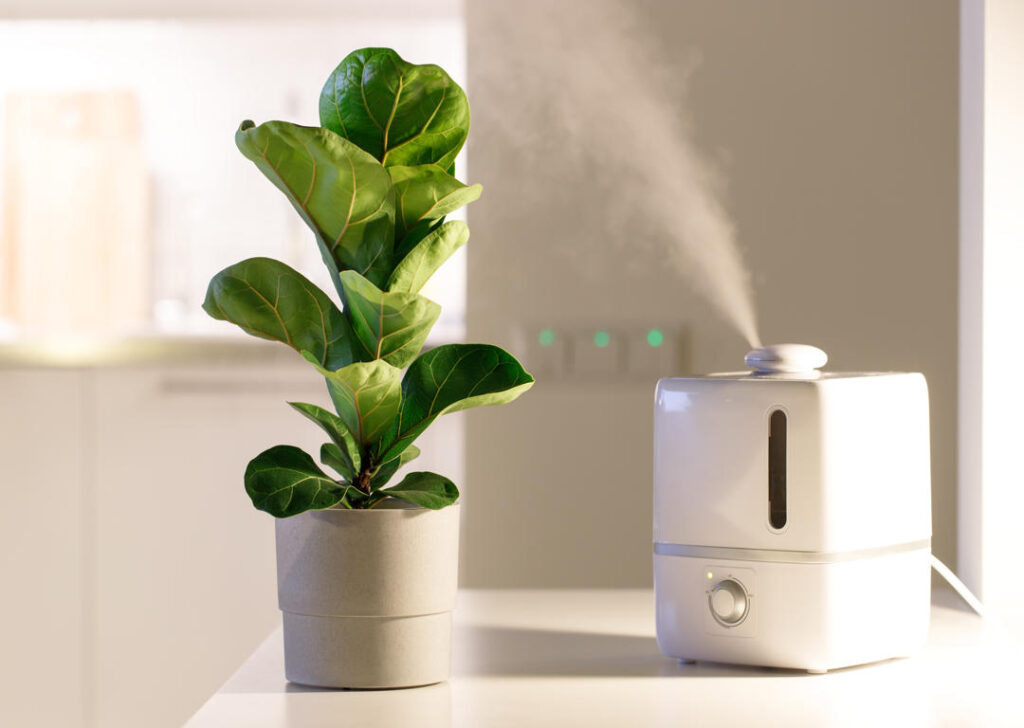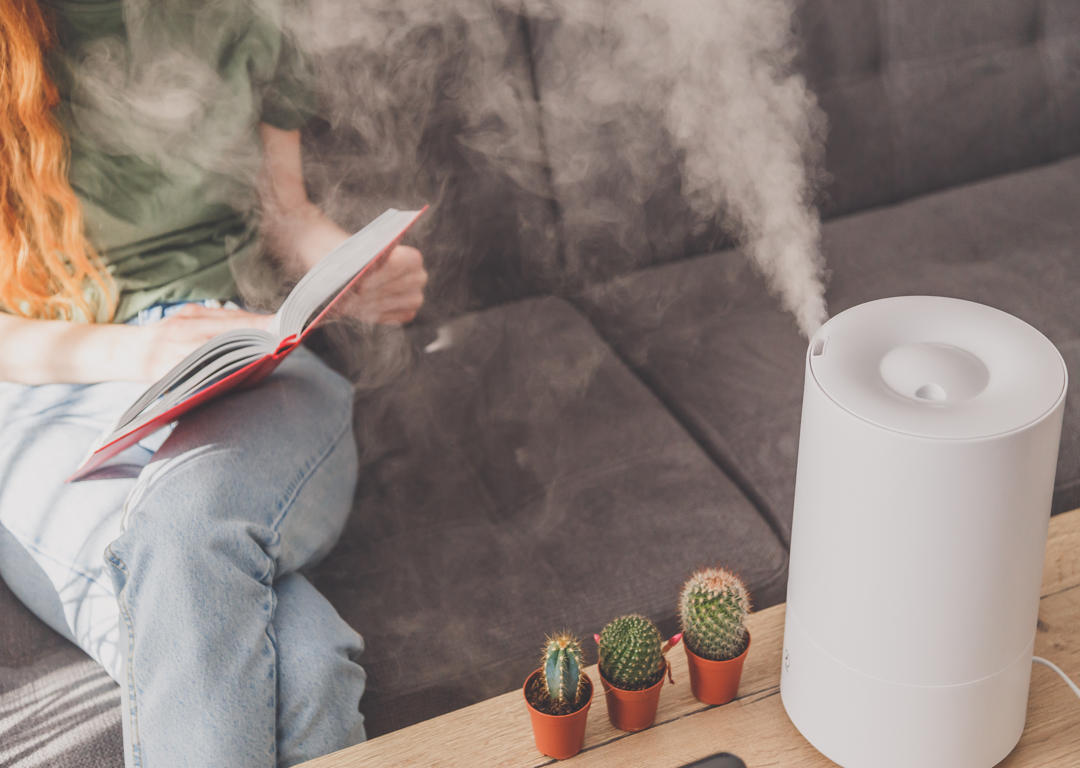The Role of Humidifiers in Winter Comfort: How They Improve Indoor Air Quality and Comfort

As winter approaches and temperatures begin to drop, the air inside your home can become dry and uncomfortable. In colder climates like Denver, CO, running your heating system consistently can significantly reduce indoor humidity levels, leading to various issues such as dry skin, irritated sinuses, and even damage to wooden furniture. This is where humidifiers come into play. Humidifiers not only help improve indoor air quality but also play a crucial role in maintaining winter comfort. At L & L Heating and Air Conditioning, we recommend integrating a humidifier into your home to enhance comfort during the coldest months. Below, we explore the benefits of humidifiers and how they can contribute to a healthier and more comfortable living environment during winter.
Why Humidity Levels Drop in Winter
During winter, cold air holds much less moisture than warm air. When outdoor air is heated indoors, its relative humidity level drops even further. As a result, the air inside your home can become excessively dry, often below the recommended indoor humidity range of 30% to 50%. Prolonged exposure to low humidity levels can lead to discomfort, health problems, and even damage to your home’s interior.
Heated air from furnaces and other heating systems further exacerbates the issue by stripping moisture from the air. Without an adequate solution to replenish this lost moisture, you may experience a range of physical and environmental discomforts. Fortunately, a humidifier can solve this issue by restoring proper moisture levels, leading to a more comfortable and healthier home environment.
Benefits of Using a Humidifier in Winter
Humidifiers play a crucial role in improving indoor comfort and air quality during the winter. Here are some of the key benefits:
Improves Health and Alleviates Respiratory Issues
Dry indoor air can irritate your nasal passages and throat, leading to discomfort, especially for individuals with asthma, allergies, or respiratory conditions. Low humidity levels can cause the mucous membranes in your nose and throat to dry out, making you more susceptible to colds, the flu, and other infections.
A humidifier helps keep the air in your home moist, making it easier to breathe and alleviating symptoms such as coughing, congestion, and sinus irritation. Maintaining the right humidity levels can also prevent your skin from drying out, reducing itchiness, cracked lips, and dry eyes that often occur during the winter months.
Reduces Static Electricity
Dry air increases static electricity in your home, which can lead to small shocks when touching doorknobs, electronics, or other metal objects. While static electricity is usually harmless, it can be irritating and even damage sensitive electronic devices. By adding moisture to the air, a humidifier reduces static buildup, making your home more comfortable and protecting your electronics.
Preserves Wooden Furniture and Flooring
Low humidity levels can take a toll on your home’s wooden furniture, flooring, and even structural elements. When the air becomes too dry, wood can contract, causing cracks, gaps, and warping. Wooden furniture and hardwood floors can become damaged over time if the air in your home remains too dry throughout the winter.
Using a humidifier can help prevent these issues by maintaining consistent humidity levels, which prevents wood from shrinking and cracking. This small investment can extend the life of your furniture, floors, and other wooden elements in your home.
Types of Humidifiers and Choosing the Right One
When considering adding a humidifier to your home for winter comfort, there are several options to choose from, depending on the size of your space and your specific needs:
- Central Humidifiers: These are integrated directly into your home’s heating and cooling system, providing consistent humidity throughout the entire house. They are ideal for larger homes and offer a low-maintenance solution since they operate in conjunction with your HVAC system. Central humidifiers are often the best choice for those seeking whole-home moisture control.
- Evaporative Humidifiers: These are among the most common and affordable options. They work by using a fan to blow air through a moistened wick or filter, releasing water vapor into the air. Evaporative humidifiers are typically portable and can be placed in individual rooms for localized humidity control.
- Ultrasonic Humidifiers: These use ultrasonic vibrations to create a fine mist of water droplets that are dispersed into the air. Ultrasonic humidifiers are known for being extremely quiet and energy-efficient, making them a popular choice for bedrooms or living spaces where noise may be a concern.
- Steam Vaporizers: These units heat water to create steam, which is then cooled slightly before being released into the air. Steam vaporizers are effective but may consume more energy compared to other types of humidifiers.
Selecting the right humidifier depends on factors such as the size of the area you want to humidify, your budget, and how much maintenance you’re willing to perform. For larger homes, central humidifiers are often the most convenient and efficient choice, while portable units work well for smaller rooms or targeted areas.
Maintaining Your Humidifier for Optimal Performance
To ensure that your humidifier operates effectively throughout the winter, regular maintenance is crucial. Proper care helps prevent mold, bacteria, and mineral deposits from accumulating in the humidifier, which can negatively affect indoor air quality.
Here are a few key maintenance tips:
- Clean the humidifier regularly: Follow the manufacturer’s instructions for cleaning and disinfecting the unit. This typically involves rinsing the water tank, wiping down surfaces, and soaking parts in a vinegar solution to remove mineral deposits.
- Use distilled water: For certain types of humidifiers, especially ultrasonic models, using distilled water can help reduce the buildup of mineral deposits and prevent the release of white dust into the air.
- Replace filters as needed: If your humidifier uses a filter or wick, make sure to replace it according to the manufacturer’s recommendations to keep the unit functioning efficiently.
- Monitor humidity levels: Use a hygrometer to measure the humidity in your home and adjust the settings on your humidifier accordingly. Aim to maintain humidity levels between 30% and 50% for optimal comfort and air quality.
Enhancing Winter Comfort with a Humidifier
Incorporating a humidifier into your home during the winter months is an easy and effective way to improve indoor comfort and air quality. By adding moisture back into the dry winter air, a humidifier can help alleviate health issues, protect your home, and create a more comfortable living environment.
- Health benefits: Prevents dry skin, nasal congestion, and irritation.
- Static electricity reduction: Minimizes static shocks and protects electronics.
- Home preservation: Prevents cracking and warping of wooden furniture and floors.
- Variety of options: Choose from central, evaporative, ultrasonic, or steam vaporizers depending on your needs.
At L & L Heating and Air Conditioning, we understand the importance of maintaining a comfortable and healthy home environment during the winter. Whether you’re looking to install a whole-home humidifier or need advice on the best type of portable unit for your space, we can help. Contact us today to learn more about how humidifiers can improve your winter comfort and indoor air quality.





Serving Front Range Denver from Arvada to Monument
Arvada
Aurora
Boulder
Brighton
Broomfield
Castle Pines
Castle Rock
Centennial
Cherry Hills Village
Commerce City
Denver
Edgewater
Elizabeth
Englewood
Evergreen
Foxfield
Franktown
Glendale
Golden
Greenwood Village
Highlands Ranch
Ken Caryl
Lafayette
Lakewood
Larkspur
Littleton
Lone Tree
Longmont
Louisville
Morrison
Northglenn
Parker
Roxborough Park
Sedalia
Sheridan
Thornton
Westminster
Wheat Ridge




